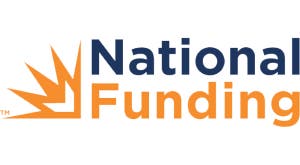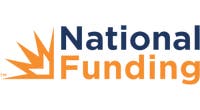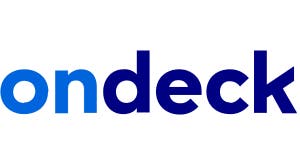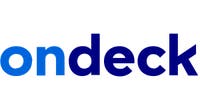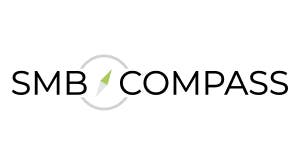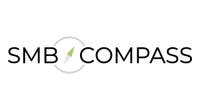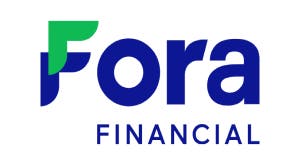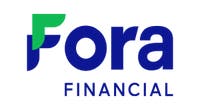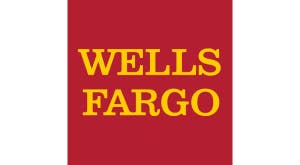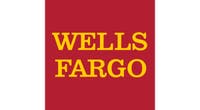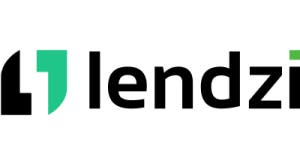on partner site
Best working capital business loans in February 2026
Updated January 8, 2026
on Bankrate
on BusinessLoans.com
on BusinessLoans.com
on Bankrate
on Bankrate
on Bankrate
on Bankrate
on BusinessLoans.com
How Banrkate works

How Banrkate works
Compare working capital loans
Bankrate gathers top lenders and compares their offerings. You can use this information to browse pros and cons, loan amounts, terms and other details that are important to you.
Get personalized offers
When you've found a lender you're interested in, click "get personalized rates" to fill out some information and get potential offers.
Apply for a loan
Apply for a loan from your personalized offers page and get funded if you qualify for the working capital loan you choose.
A closer look at our top working capital business loans
Best for fast approval: Fora Financial
Fora Financial can approve loan applications within 24 hours and quickly provide funding. Combined with loans ranging from $5,000 to $1.5 million, Fora Financial is a great lender for startups.
Pros and cons
- Possible early repayment discount
- Soft credit check at application
- Minimum FICO score of 570
- Maximum factor rate is fairly high
- Few types of loans
- Steep annual revenue requirement
Best for merchant cash advance: Lendzi
Lendzi doesn’t have high requirements when it comes to personal credit score and revenue because it is not a direct lender. That said, it works with many partners to connect borrowers with loan options that suit their needs, and its merchant cash advance options can help companies that are unable to get approved for a traditional loan.
Pros and cons
- Fast funding
- High lending amounts
- Potentially high interest rates and fees
- Mixed loan details from representatives
Best lender for startups: OnDeck
OnDeck can provide fast funding with reasonable terms to businesses that have only been active for one full year, which is one of the reasons it is Bankrate's 2025 best lender for startups.
Pros and cons
- Same-day funding
- Early repayment incentives
- Helps build business credit
- High APRs
- Loan origination fees
- Requires personal guarantees
Best for bridge loan: SMB Compass
In addition to traditional business loans, SMB Compass offers bridge loans of up to $5 million for eligible businesses. Additionally, it may be able to fund a loan application within 24 hours.
Pros and cons
- Fast funding
- Competitive interest rates
- Not available to sole proprietorships
- Not available in all 50 states
Best for personalized funding: SmallBusinessLoans.com
SmallBusinessLoans.com is a platform that matches borrowers with lenders based on their size, revenue, credit and other factors. As a result, SmallBusinessLoans.com can give business owners a highly personalized experience that meets their needs.
Pros and cons
- Low minimum annual revenue requirement
- Variety of lending partners
- Personalized funding options
- Must fill out an application to know what you qualify for
- May not be eligible for every product
- Limited information online
Best lender for good-to-excellent credit: Wells Fargo Business
Wells Fargo is our pick for a small business lender for borrowers with good-to-excellent credit. For those who qualify, Wells Fargo offers large loan amounts at attractive rates.
Pros and cons
- Competitive rates
- Rewards program
- Multiple lines of credit
- High credit score requirements
- Personal guarantee or collateral required
- Annual fee for some products
Best CDFI for small business loans: Accion Opportunity Fund
Accion Opportunity Fund is an organization with a mission to help fund businesses in historically underserved communities. Their fair terms and resources offered to entrepreneurs make Accion Opportunity Fund our pick for the best CDFI for small business loans.
Pros and cons
- Low interest rates
- Help minority businesses
- Mentoring and educational support
- Only offers two loan options
- Only offers loan amounts up to $250,000
Best for fair credit: American Express Business Blueprint
American Express is a well-known financial institution that offers many financial services for consumers and businesses alike. With a business line of credit available to FICO scores of just 660, American Express could be a good fit for business owners who need capital but only have fair credit.
Pros and cons
- Online application
- Flexible access to funds
- Multiple term options
- High fees on longer terms
- Personal guarantee required
- Minimum draw amounts
Best for unsecured working capital loans: National Funding
Those looking for a working capital loan from National Funding will need a personal credit score of 660 or higher to qualify. They will also need to have an annual business revenue of at least $250,000 and be in business for six months or more.
Pros and cons
- Fast funding
- Early payoff discount
- Limited monthly payment option
- Potentially high interest rates
- $250,000 minimum annual revenue required
How Bankrate chooses our best working capital business loan lenders
Bankrate's trusted small business loan industry expertise
57
years in business
30
lenders reviewed
22
loan features weighed
770
data points collected
To choose the best business lines of credit, we ensure all loans featured are broadly available across the United States. We then consider features that make loans affordable and accessible to businesses with different characteristics and needs, including interest rates, whether the loans are secured or unsecured, minimum annual revenue and fees.
When evaluating lenders, we use a 22-point scale to measure quality in five key areas:
How to get a working capital business loan
A working capital loan is designed to infuse cash into the business for everyday operations, such as marketing, inventory or payroll. These loans boost your business’s working capital, which is your current assets minus liabilities. The positive amount left over is the amount you can use for day-to-day purchases or to expand your business.
Working capital business loans can help bolster your cash reserves when your cash flow gets low or help weather a period of slow sales. This can take many forms, and you can use other loans to boost your business’s working capital, including short-term loans and business lines of credit.
Depending on the type of loan, working capital loans may be easier to qualify for than standard term loans. They may require only a year in business and a personal FICO score of 500 to 600.
Most working capital loans will have a set repayment schedule with fixed payments. If you open a business line of credit, your credit limit will reset as you pay off the loan, allowing you to borrow more funds as needed.
In general, working capital loans can be a good idea for your business if:
- If you need cash on a short-term basis.
- You plan to use funding for operational expenses.
- You have a lower credit score or time in business.
- You can handle a shorter, more aggressive repayment period.
When is it a good idea to get a working capital loan instead of a fast loan or using a business credit card?
Thomas Brock, CFA, CPA
Expert Reviewer
Fast loans and business credit cards are known for their quick approval processes and widespread accessibility. They can be sensible when you need to quickly access a relatively small amount of money on a short-term basis. However, they have relatively high interest rates and unfavorable terms. If you require a more significant amount of money and anticipate needing several months to repay the debt, working capital loans are more cost-effective. These loans have lower interest rates and more flexible repayment schedules than fast loans and business credit cards.
Pros and cons of a working capital loan
Working capital loans work well for small businesses needing fast funding to cover everyday expenses and gaps in cash flow. But you might pay for the convenience. Make sure to consider the pros and cons of working capital loans before you apply for one.

Pros
- Get cash fast. Many lenders fund working capital loans fast — usually within a few days — though it depends on the type of loan and how much you need.
- Typically used as needed. Unless you go with a term loan, your business can typically use the funds for any expenses. You may have to state the reason you need the funds for a term loan.
- Relaxed eligibility requirements. Businesses with bad credit can find loans to increase working capital, including alternative loan options tied to accounts receivable.

Cons
- Short, aggressive repayment terms. Most working capital loans require repayment within a few months, such as six or 18 months. They may also require daily or weekly payments, an aggressive schedule that cuts into profits.
- Potentially high interest or fees. Some working capital loans come with high interest rates, upwards of 75.00 percent, while others charge factor rates and additional fees like processing fees. Factor rates are known for converting to a high interest rate since they’re often used with risky types of loans.
- Low loan amounts. The loan amount that you qualify for may be lower than a standard business loan. This may be due to aggressive repayments or a risky credit profile.

What is a working capital loan
Working capital loans can help you cover short-term operating expenses. Here’s what you need to know.
Learn moreCalculate how much debt your business can take on
How much you’ll pay for a working capital loan will depend on your credit history, revenue, loan amount and the type of loan in question. As of July 2025, average loan rates for standard loans are between 7.3 and 7.6 percent APR, between 6.5 and 8 percent APR for lines of credit and 1.04 to 1.32 factor rates for merchant cash advances.
As a rule of thumb, you shouldn’t borrow more than 36 percent of your business’ annual revenue when taking out a loan. If your business makes $250,000 annually, for example, you shouldn’t borrow more than $90,000.
Your monthly, weekly or daily payment will also be an important factor in determining how much you can afford, as missing a payment due to lack of funds can result in fees and the possibility of default. Using a loan calculator can help you calculate how much your monthly payment will be based on your loan amount.
For example, if you want to cap your monthly payment on a 12-month loan at $1,000 with a 1.1 factor rate (19.03 percent APR), then your maximum loan amount would be $10,849.
Make sure you meet requirements
Every lender sets its own standards for granting working capital loans to small businesses. In general, these loans have lenient eligibility criteria since they’re meant for small, everyday purchases.
Requirements you can expect include:
- Annual revenue: Lenders require your business to make a specific amount monthly or annually to show steady cash flow. For working capital loans, these can range from $36,000 to $250,000 annually.
- Time in business: Most lenders prefer businesses to show they have several years in the market. But working capital loans can offer loans to businesses with three months to two years in business.
- Credit score: The minimum credit score is based on how much risk individual lenders are willing to take on. It’s typically set between a 625 and 680 FICO score, but some lenders go as low as 500.
- Industry: Lenders evaluate your business’s financial statements and risks for your industry. In some cases, the lender posts a list of industries it won’t work with, such as consulting or financial services.
Lenders often use your personal credit score to determine creditworthiness, though a business credit score may be weighed for more established businesses.
Prequalify through Bankrate
When shopping for loans, consider prequalifying with us. Bankrate offers multiple benefits if you decide to prequalify on our site, including:
- Instant prequalification based on your credit profile.
- Compare multiple lenders at once instead of one lender at a time.
- No hard credit checks.
- Get expert insights based on unbiased reviews and analyses.
- Access loan information and applications in one place.
- Build a profile you can access later in the process.
How to compare working capital business loans
Working capital loans can differ in their borrowing costs, lender terms and other factors that impact how the loan works for you. Which loan works best for you will depend on your priorities. Check out Bankrate’s rate cards for a one on one look at different factors and interest rates for a detailed comparison.
| Most important factor | What to consider |
|---|---|
| Borrowing costs |
|
| Speed of approval |
|
| Repayment terms |
|
| Requirements |
|
| Approval odds |
|
| Funding amounts |
|
| Industry |
|

Types of working capital business loans
From SBA loans to invoice factoring, here’s what you have to pick from.
Learn moreFrequently asked questions about working capital loans
- Small business loans
- Personal finance


